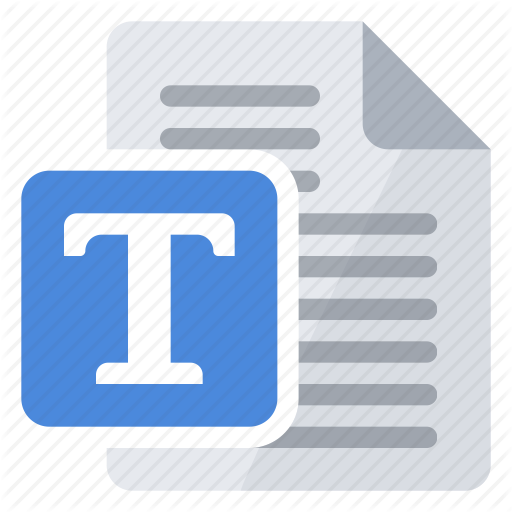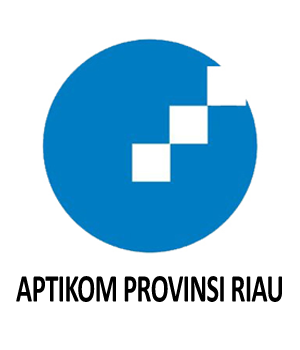Memomath: Educational Game Application for Elementary School Children in Special Inclusion Classes for Students with Slow Learner Diagnosis
Abstract
Memomath is a game-based educational application designed to support the learning of children diagnosed as slow learners in elementary school inclusion classes. This application integrates mnemonic-based math, reading, and memory exercises to improve students' academic skills and learning motivation. This research was conducted at SDIT Madani Islam Terpadu Kota Payakumbuh, an inclusive school that provides special programs for students with slow learning needs. The waterfall method was applied in the development of this application, involving the stages of needs analysis, design, implementation, testing, and maintenance. The test results showed that this application was effective in increasing engagement and understanding of concepts in students, especially at the age of 7-12 years. The data also revealed the relationship between age and duration of application use, providing important insights for design optimization. This study shows that a targeted gamification approach can make a significant contribution to the education of children with special needs, especially in helping them overcome learning challenges.
Downloads
References
A. Al‐Hroub, “Programming for Mathematically Gifted Children With Learning Difficulties,” Routledge, vol. 32(4), pp. 259–271, 2020, doi: https://doi.org/10.1080/02783193.2010.508157.
D. R. Soares, N., Evans, T M., & Patel, “Specific learning disability in mathematics: a comprehensive review.,” AME Publ. Co., vol. 7(1), pp. 48–62, 2018, doi: https://doi.org/10.21037/tp.2017.08.03.
A. Saleh, M., Alja’am, J M., Karime, A., & El-Saddik, “Learning games for children with intellectual challenges,” vol. 3, pp. 1–5, 2018, doi: https://doi.org/10.1109/ithet.2012.6246027.
A. L. Putnam, “Mnemonics in education: Current research and applications,” Am. Psychol. Assoc., vol. 1(2), pp. 130–139, 2015, doi: https://doi.org/10.1037/tps0000023.
M. Wolgemuth, J R., Cobb, R B., & Alwell, “he Effects of Mnemonic Interventions on Academic Outcomes for Youth with Disabilities: A Systematic Review,” Wiley, vol. 23(1), pp. 1–10, 2008, doi: https://doi.org/10.1111/j.1540-5826.2007.00258.x.
T. Metikasari, S., Usodo, B., & Triyanto, “Mathematics Learning Difficulties of Slow Learners on A Circle,” IOP Publ., vol. 1227(1), pp. 012022–012022, 2019, doi: https://doi.org/10.1088/1742-6596/1227/1/012022.
E. Yildirim, O., & Sürer, “Developing Adaptive Serious Games for Children With Specific Learning Difficulties: A Two-phase Usability and Technology Acceptance Study,” JMIR Publ., vol. 9(2), pp. e25997–e25997, 2021, doi: https://doi.org/10.2196/25997.
V. M. Cano, S., Palta, A., Posso, F., & Peñeñory, “Towards designing a serious game for literacy in children with moderate cognitive disability,” 2017, doi: https://doi.org/10.1145/3123818.3123835.
S. Faghihi, U., Brautigam, A., Jorgenson, K., Martin, D S., Brown, A., Measures, E A., & Maldonado‐Bouchard, “How Gamification Applies for Educational Purpose Specially with College Algebra,” Elsevier BV, vol. 41, pp. 182–187, 2014, doi: https://doi.org/10.1016/j.procs.2014.11.102.
Munir, Pembelajaran Digital. 2017.
C. C. Hwang GJ, Wu PH, “An online game approach for improving students’ learning performance in web-based problem-solving activities,” Comput. Educ., vol. 59(4), pp. 1246–56, 2012, doi: doi:10.1016/j.compedu.2012.05.009.
K. K, “Foundation for problem-based gaming,” Br. J. Educ. Technol., vol. 36(3), pp. 4014–11, 2005, doi: doi:10.1111/j.1467-8535.2005.00479.x.
I. W. Gunawan TI, “An Android Augmented Reality Application to Improve Cognitive Skills in Color Recognition for Down Syndrome children,” J. Teknol. Dan Sist. Inf. Bisnis, vol. 6(3), pp. 378–384, 2024.
D. D. Suryadana A, “Rancang Bangun Game Edukasi Visual Novel Kisah Pangeran Diponegoro dan Pengaruhnya Terhadap Minat Belajar Siswa,” J. Teknol. Dan Sist. Inf. Bisnis., vol. 6(1), pp. 29–42, 2024, doi: doi:10.47233/jteksis.v6i1.1096.
S. D. Nugroho A, “Penerapan Gamifikasi pada Aplikasi Pembelajaran Berbasis Construct,” J. Pendidik. Teknol., vol. 15(1), pp. 22–30, 2021.
P. W. Pranata S., A. Nugroho, and Roby Setiawan, “Perancangan Game Edukasi ‘Kabataku’ Untuk Anak Sekolah Dasar Dengan Menggunakan Metode Quiz Team,” J. Inform. Dan Rekayasa Komputer(JAKAKOM), vol. 4, no. 1, pp. 773–781, 2024, doi: 10.33998/jakakom.2024.4.1.1467.
R. Widyastuti and L. S. Puspita, “Pengembangan Media Pembelajaran Berbasis Game Edukasi Pada MatPel IPA Tematik Kebersihan Lingkungan,” Paradig. - J. Komput. dan Inform., vol. 22, no. 1, pp. 95–100, 2020, doi: 10.31294/p.v22i1.7084.
L. Amalia et al., “Perancangan Board Game Edukatif sebagai Media Pembelajaran Lagu Daerah Jawa untuk Siswa Sekolah Dasar Usia 9-11 Tahun,” J. Fenom. Seni, vol. 1, no. 2, pp. 32–44, 2023, [Online]. Available: https://journal.isi.ac.id/index.php/fenomen
R. Novita, A. N. Khomarudin, R. Aulia, J. Jamaluddin, A. Yuditihwa, and A. Ayuri, “Penerapan Algoritma K-Means dan Analisisnya untuk Menentukan Kebijakan Strategis Penyelesaian Studi Mahasiswa,” J. SAINTIKOM (Jurnal Sains Manaj. Inform. dan Komputer), vol. 22, no. 2, p. 401, 2023, doi: 10.53513/jis.v22i2.8461.
S. Zakir, E. Maiyana, A. Nur Khomarudin, R. Novita, and M. Deurama, “Development of 3D Animation Based Hydrocarbon Learning Media,” J. Phys. Conf. Ser., vol. 1779, no. 1, pp. 0–8, 2021, doi: 10.1088/1742-6596/1779/1/012008.
A. Zulkarnais, P. Prasetyawan, and A. Sucipto, “Game Edukasi Pengenalan Cerita Rakyat Lampung Pada Platform Android,” J. Inform. J. Pengemb. IT, vol. 3, no. 1, pp. 96–102, 2018, doi: 10.30591/jpit.v3i1.621.
E. Hurd, D., dan Jennings, Standardized Educational Games Ratings: Suggested Criteria. 2009.
R. Nazli, “Pemodelan Game Edukasi Matematika untuk Meningkatkan Kualitas Berhitung Penjumlahan Angka pada Anak Usia Dini,” SAINTIKOM UNIKS, vol. 2(1), pp. 156–164, 2016.
S. D., Panduan Dasar Membuat Game dengan Construct 3. 2021.
S. D. Nugroho A, “Penerapan Gamifikasi pada Aplikasi Pembelajaran Berbasis Construct,” J. Pendidik. Teknol., vol. 15(1), pp. 22–30, 2021.
P. R. Saputra A, “Pengembangan Game Edukasi Anak Berbasis Android Menggunakan Construct 3,” J. Pendidik. Teknol. Inf. dan Komunikasi., vol. 15(1), pp. 67–75, 2021.
Copyright (c) 2024 Trinovita Zuhara Jingga, Rina Novita, Ega Evinda, Widya Febrina, Perdana Putra

This work is licensed under a Creative Commons Attribution-ShareAlike 4.0 International License.
This is an open-access article distributed under the terms of the Creative Commons Attribution-ShareAlike 4.0 International License which permits unrestricted use, distribution, and reproduction in any medium. Users are allowed to read, download, copy, distribute, search, or link to full-text articles in this journal without asking by giving appropriate credit, provide a link to the license, and indicate if changes were made. All of the remix, transform, or build upon the material must distribute the contributions under the same license as the original.















